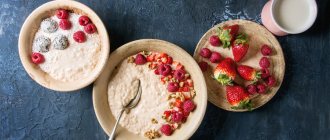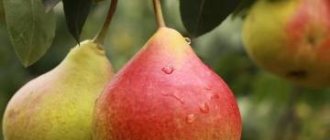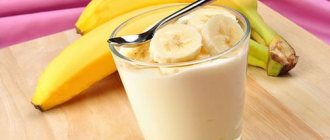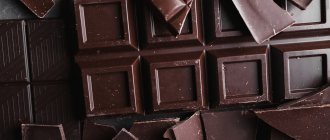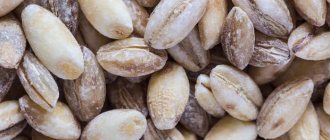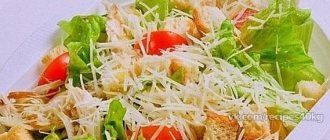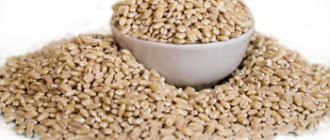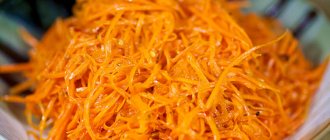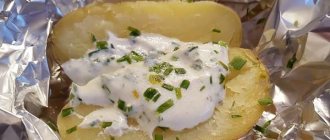Oriental delicacies are known all over the world due to their exquisite, amazing taste, as well as the presence of many vitamins and minerals in their composition, which is not very typical for sweets. The benefits of oriental desserts are due to the fact that they are usually based on natural products that are very healthy for the body: various nuts and seeds.
There is such a famous sweet as sherbet. What is this product, what benefits does it bring to our health and can it cause harm?
Sherbet - basic information about the product
So, let's take a closer look at what this dessert is. Its homeland is one of the countries of the East - Turkey, Persia, and maybe even ancient China. History cannot yet provide more accurate data.
Classic sherbet is a sweet fudge made from condensed milk and containing whole or chopped nuts. The taste of the product is rich, with a slight nutty flavor, sugary and very sweet. It is this delicacy that is most widely known to domestic consumers.
However, it is worth saying that sherbet can be served in other ways. So, the French reworked the recipe for oriental sweets to their own taste and invented a new dish, known throughout the world as sorbet. This is a delicacy that is essentially ice cream made from fruit or berry juice. We can say that the French version is the same sherbet, but with a slightly different consistency and with a slightly modified composition.
It is impossible not to mention the oldest type of delicacy, sherbet, which is a sweet cocktail of various nuts, fruits and the addition of aromatic spices. It was in this form that the drink was served in eastern countries - and it was this that became the prototype of French nut-fruit ice cream and the familiar dessert in the form of fudge.
Ingredients
There are many ways of preparation: with peanuts, walnuts, hazelnuts, with condensed or regular milk, with the addition of cream, honey. To ensure the dessert has the desired consistency, stick to the proportions.
The classic recipe consists of the following ingredients:
- 1 cup peanuts;
- 1 glass of milk;
- 3-3.5 cups sugar;
- 100 g butter.
It is better to purchase groundnuts raw and roast them yourself:
- Fry for 15 minutes in the oven at 170 degrees;
- Cool and grind, thus removing the husks.
The basis of sherbet is whole milk of medium fat content. You can use cream and reduce the amount of butter. The higher the fat content of the base, the faster the mixture will harden.
Be sure to choose natural butter. A real dairy product cannot have a fat content of less than 82% and be cheap.
Preparation:
- Pour milk into a saucepan with a thick bottom, add 2 cups of sugar;
- Cook for half an hour over low heat, stirring constantly;
- Melt the remaining sugar in a frying pan until amber in color (
- Do not allow the caramel to burn, otherwise the sherbet will turn out bitter);
- Stir caramel into milk mixture until smooth;
- Cook for 25-30 minutes until thickened;
- Add butter and shelled peanuts;
- You don’t have to add nuts to the mixture, but distribute them evenly over the pan;
- Pour the mixture into the prepared form (it is advisable to line the bottom of the container with baking paper or grease it with butter. There is no need to cover the glass form);
- Level the surface of the dessert, cool and put in the refrigerator.
Remove the finished dessert from the mold and cut into pieces. Serve as a dessert with tea, sour juice or coffee.
Useful qualities
- The benefits of this popular delicacy directly depend on the ingredients it contains. So, the most beneficial for our body will, of course, be a dessert made from natural products - nuts, seeds, fruits or berries.
- Walnut sherbet has a rich vitamin and mineral composition . Thus, it contains a fairly high content of tocopherol, which is involved in the functioning of the immune system and helps our body fight the processes of aging and withering. Tocopherol is also necessary for the normal functioning of the female reproductive system, maintaining healthy skin, hair and nails.
- Vitamin A , present in the dessert, is beneficial for the musculoskeletal system - it reduces bone fragility and increases the elasticity of joints.
- Retinol is also incredibly beneficial for the eyes - it prevents the development of many vision diseases and also prevents vision loss. Therefore, sherbet should be eaten by those who spend a lot of time at the computer or are prone to myopia.
- Vitamins PP and K are involved in hematopoietic function and serve as the prevention of iron deficiency anemia.
- The product is also rich in B vitamins , which play an important role in the functioning of the digestive system, the most important metabolic processes occurring in the body, as well as regulating mental activity, sleep patterns and the psyche.
- Natural fatty acids contained in the dessert are very beneficial for the health of the gastrointestinal tract. They also improve the functioning of the stomach and facilitate the process of digesting food.
- It has been noticed that nut sherbet improves the absorption of calcium in the body , thereby strengthening bones and teeth.
- Peanuts , which are included in the delicacy, have a beneficial effect on the functioning of the cardiovascular system, help normalize blood pressure and improve blood flow.
- There is a positive effect on the condition of the kidneys and liver . Moderate consumption of sherbet helps cleanse the body of toxins and toxic compounds.
- The delicacy is rich in nuts - natural antioxidants that slow down the aging process of the body, and also significantly reduce the risk of developing malignant tumors.
- A sweet dessert will help stabilize the psycho-emotional background , improve your mood, and overcome apathy and blues.
Sherbet: benefits and harm
There is no product in the world that has a wide range of useful properties, but does not have at least one harmful quality. So, sherbet can bring not only benefits to the body, but also harm.
Beneficial features
All the beneficial properties of the product depend on the ingredients that are included in its composition. So, each type of this sweetness can have a positive effect on internal organs and the entire body as a whole. What are the benefits of sherbet:
- normalizes the activity of the cardiovascular system;
- improves liver and kidney function;
- improves visual acuity;
- promotes proper absorption of sugar;
- Helps actively absorb calcium into the body.
The product is noted to be beneficial for anemia and hypertension, neurosis and nervous strain. Many beneficial substances in sweets have a beneficial effect on diseases of teeth and gums, and also help with stomach problems and vitamin deficiencies. The antibacterial properties of the product help the body recover from various lung diseases.
Contraindications
Due to the high sugar content, the product is not recommended for people with diabetes and those who are watching their figure. But you should also refrain from using sherbet if you have diseases of the liver and pancreas.
It is not recommended to include in the diet of pregnant and lactating women. Since many components of the treat can cause allergies, it is not recommended for people who are predisposed to allergies. The main allergenic components of sweets are honey, peanuts and some dried fruits.
You can prepare sherbet yourself , at home, using only good and high-quality ingredients. Finding a recipe on the Internet is not difficult. Moreover, you can prepare not only modern sherbet, but also an ancient drink, adding new and original ingredients to the dessert, which will give the sweet a bright and piquant taste.
Things to remember
Unfortunately, like almost any product, sherbet has not only a lot of useful properties, but also many contraindications, as well as side effects from consumption.
- from diabetes or allergies to nuts and fruits should not eat sweets
- Do not forget that the product is quite high in calories - its nutritional value can exceed 550 kcal per 100 g . Therefore, it is worth consuming sherbet in moderation and, of course, no more than a couple of times a week, since an excess of sweets in the diet can be fraught with rapid weight gain, skin problems, heart problems and, of course, diabetes.
- Pregnant women, as well as women during lactation, should use the treat with caution to avoid an allergic reaction in the baby.
- Due to the fairly high sugar content, sherbet may be contraindicated for people with problems with the pancreas or liver .
- Unlimited consumption of sweets can provoke the development of dental problems (including caries).
Sherbet with peanuts recipe. Calorie, chemical composition and nutritional value.
Nutritional value and chemical composition of Sherbet with Peanuts.
The table shows the nutritional content (calories, proteins, fats, carbohydrates, vitamins and minerals) per 100 grams of edible portion.
| Nutrient | Quantity | Norm** | % of the norm in 100 g | % of the norm in 100 kcal | 100% normal |
| Calorie content | 455.2 kcal | 1684 kcal | 27% | 5.9% | 370 g |
| Squirrels | 5.4 g | 76 g | 7.1% | 1.6% | 1407 g |
| Fats | 14.2 g | 56 g | 25.4% | 5.6% | 394 g |
| Carbohydrates | 76.4 g | 219 g | 34.9% | 7.7% | 287 g |
| Alimentary fiber | 1.4 g | 20 g | 7% | 1.5% | 1429 g |
| Water | 1.7 g | 2273 g | 0.1% | 133706 g | |
| Ash | 0.72 g | ~ | |||
| Vitamins | |||||
| Vitamin A, RE | 37.9 mcg | 900 mcg | 4.2% | 0.9% | 2375 g |
| Retinol | 0.034 mg | ~ | |||
| beta carotene | 0.025 mg | 5 mg | 0.5% | 0.1% | 20000 g |
| Vitamin B1, thiamine | 0.142 mg | 1.5 mg | 9.5% | 2.1% | 1056 g |
| Vitamin B2, riboflavin | 0.061 mg | 1.8 mg | 3.4% | 0.7% | 2951 g |
| Vitamin B4, choline | 15.95 mg | 500 mg | 3.2% | 0.7% | 3135 g |
| Vitamin B5, pantothenic | 0.4 mg | 5 mg | 8% | 1.8% | 1250 g |
| Vitamin B6, pyridoxine | 0.073 mg | 2 mg | 3.7% | 0.8% | 2740 g |
| Vitamin B9, folates | 44 mcg | 400 mcg | 11% | 2.4% | 909 g |
| Vitamin B12, cobalamin | 0.099 mcg | 3 mcg | 3.3% | 0.7% | 3030 g |
| Vitamin C, ascorbic acid | 1.22 mg | 90 mg | 1.4% | 0.3% | 7377 g |
| Vitamin D, calciferol | 0.109 mcg | 10 mcg | 1.1% | 0.2% | 9174 g |
| Vitamin E, alpha tocopherol, TE | 1.892 mg | 15 mg | 12.6% | 2.8% | 793 g |
| Vitamin H, biotin | 3.805 mcg | 50 mcg | 7.6% | 1.7% | 1314 g |
| Vitamin K, phylloquinone | 1.1 mcg | 120 mcg | 0.9% | 0.2% | 10909 g |
| Vitamin RR, NE | 3.5884 mg | 20 mg | 17.9% | 3.9% | 557 g |
| Niacin | 2.392 mg | ~ | |||
| Macronutrients | |||||
| Potassium, K | 154.48 mg | 2500 mg | 6.2% | 1.4% | 1618 g |
| Calcium, Ca | 44.36 mg | 1000 mg | 4.4% | 1% | 2254 g |
| Silicon, Si | 14.316 mg | 30 mg | 47.7% | 10.5% | 210 g |
| Magnesium, Mg | 35.77 mg | 400 mg | 8.9% | 2% | 1118 g |
| Sodium, Na | 17.06 mg | 1300 mg | 1.3% | 0.3% | 7620 g |
| Sera, S | 22.02 mg | 1000 mg | 2.2% | 0.5% | 4541 g |
| Phosphorus, P | 85.2 mg | 800 mg | 10.7% | 2.4% | 939 g |
| Chlorine, Cl | 30.14 mg | 2300 mg | 1.3% | 0.3% | 7631 g |
| Microelements | |||||
| Aluminium, Al | 278.9 mcg | ~ | |||
| Bor, B | 35.8 mcg | ~ | |||
| Vanadium, V | 30.42 mcg | ~ | |||
| Iron, Fe | 1.154 mg | 18 mg | 6.4% | 1.4% | 1560 g |
| Yod, I | 2.25 mcg | 150 mcg | 1.5% | 0.3% | 6667 g |
| Cobalt, Co | 1.376 mcg | 10 mcg | 13.8% | 3% | 727 g |
| Lithium, Li | 1.951 mcg | ~ | |||
| Manganese, Mn | 0.3477 mg | 2 mg | 17.4% | 3.8% | 575 g |
| Copper, Cu | 207.75 mcg | 1000 mcg | 20.8% | 4.6% | 481 g |
| Molybdenum, Mo | 3.128 mcg | 70 mcg | 4.5% | 1% | 2238 g |
| Nickel, Ni | 1.727 mcg | ~ | |||
| Tin, Sn | 2.74 mcg | ~ | |||
| Rubidium, Rb | 1.8 mcg | ~ | |||
| Selenium, Se | 1.794 mcg | 55 mcg | 3.3% | 0.7% | 3066 g |
| Strontium, Sr | 39.37 mcg | ~ | |||
| Titanium, Ti | 8.05 mcg | ~ | |||
| Fluorine, F | 20.73 mcg | 4000 mcg | 0.5% | 0.1% | 19296 g |
| Chromium, Cr | 2.16 mcg | 50 mcg | 4.3% | 0.9% | 2315 g |
| Zinc, Zn | 0.682 mg | 12 mg | 5.7% | 1.3% | 1760 g |
| Zirconium, Zr | 12.96 mcg | ~ | |||
| Digestible carbohydrates | |||||
| Starch and dextrins | 1.02 g | ~ | |||
| Mono- and disaccharides (sugars) | 75.4 g | max 100 g | |||
| Essential amino acids | 1.374 g | ~ | |||
| Arginine* | 0.535 g | ~ | |||
| Valin | 0.227 g | ~ | |||
| Histidine* | 0.115 g | ~ | |||
| Isoleucine | 0.165 g | ~ | |||
| Leucine | 0.322 g | ~ | |||
| Lysine | 0.172 g | ~ | |||
| Methionine | 0.053 g | ~ | |||
| Methionine + Cysteine | 0.113 g | ~ | |||
| Threonine | 0.137 g | ~ | |||
| Tryptophan | 0.055 g | ~ | |||
| Phenylalanine | 0.244 g | ~ | |||
| Phenylalanine+Tyrosine | 0.434 g | ~ | |||
| Nonessential amino acids | 3.222 g | ~ | |||
| Alanin | 0.195 g | ~ | |||
| Aspartic acid | 0.482 g | ~ | |||
| Glycine | 0.274 g | ~ | |||
| Glutamic acid | 0.912 g | ~ | |||
| Proline | 0.218 g | ~ | |||
| Serin | 0.241 g | ~ | |||
| Tyrosine | 0.191 g | ~ | |||
| Cysteine | 0.06 g | ~ | |||
| Sterols (sterols) | |||||
| Cholesterol | 14.32 mg | max 300 mg | |||
| beta sitosterol | 23.263 mg | ~ | |||
| Saturated fatty acids | |||||
| Saturated fatty acids | 5.5 g | max 18.7 g | |||
| 4:0 Oil | 0.227 g | ~ | |||
| 6:0 Kapronovaya | 0.104 g | ~ | |||
| 8:0 Caprylic | 0.056 g | ~ | |||
| 10:0 Kaprinovaya | 0.127 g | ~ | |||
| 12:0 Lauric | 0.145 g | ~ | |||
| 14:0 Miristinovaya | 0.687 g | ~ | |||
| 16:0 Palmitinaya | 2.718 g | ~ | |||
| 18:0 Stearic | 0.843 g | ~ | |||
| 20:0 Arakhinovaya | 0.125 g | ~ | |||
| 22:0 Begenovaya | 0.197 g | ~ | |||
| 24:0 Lignoceric | 0.018 g | ~ | |||
| Monounsaturated fatty acids | 5.311 g | min 16.8 g | 31.6% | 6.9% | |
| 14:1 Myristoleic | 0.13 g | ~ | |||
| 16:1 Palmitoleic | 0.195 g | ~ | |||
| 18:1 Oleic (omega-9) | 4.881 g | ~ | |||
| 20:1 Gadoleic (omega-9) | 0.089 g | ~ | |||
| Polyunsaturated fatty acids | 2.905 g | from 11.2 to 20.6 g | 25.9% | 5.7% | |
| 18:2 Linolevaya | 2.761 g | ~ | |||
| 18:3 Linolenic | 0.006 g | ~ | |||
| Omega-6 fatty acids | 2.8 g | from 4.7 to 16.8 g | 59.6% | 13.1% |
The energy value of Sherbet with peanuts is 455.2 kcal.
Primary Source: Created in the application by the user. Read more.
** This table shows the average levels of vitamins and minerals for an adult. If you want to know the norms taking into account your gender, age and other factors, then use the “My Healthy Diet” application.
Adviсe
- You should not get carried away with store-bought sherbet - it usually contains a huge amount of food additives, dyes and preservatives. If you want to get the maximum benefit, prepare the sweetness yourself - fortunately, the recipe for sherbet is quite simple and can be easily found on the Internet.
- Do not forget that there are several ways to prepare delicacies - and a wide variety. If you can't make classic hard sorbet, try making a cocktail according to an ancient Arabic recipe, or nut ice cream, popular in Paris.
Calorie content of foods possible in the dish
- Condensed milk 7.5% fat – 140 kcal/100g
- Milk 1.5% fat – 47 kcal/100g
- Milk 2.5% fat – 54 kcal/100g
- Milk 3.2% fat – 60 kcal/100g
- Milk 3.5% fat – 64 kcal/100g
- Whole cow's milk – 68 kcal/100g
- Boiled peanuts – 376 kcal/100g
- Roasted and salted peanuts – 585 kcal/100g
- Roasted peanuts with shells – 582 kcal/100g
- Peanuts – 568 kcal/100g
- Raw peanuts without shell – 568 kcal/100g
- Raw peanuts with shell – 564 kcal/100g
- Sugar – 398 kcal/100g
- Granulated sugar – 398 kcal/100g
- Peasant unsalted butter – 661 kcal/100g
- Peasant salted butter – 652 kcal/100g
- Amateur unsalted butter – 709 kcal/100g
- Butter 82% – 734 kcal/100g
- Ghee – 869 kcal/100g
What is the glycemic index of foods?

